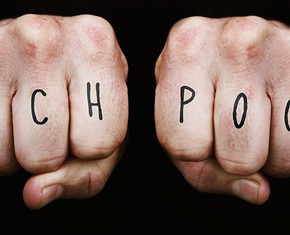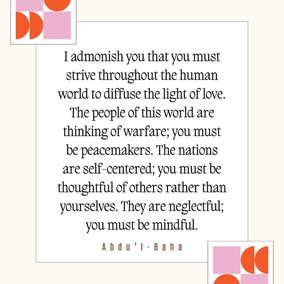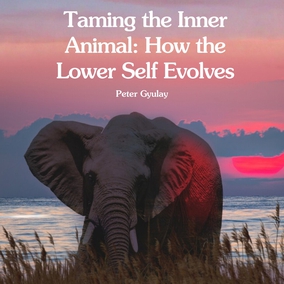The views expressed in our content reflect individual perspectives and do not represent the authoritative views of the Baha'i Faith.
A harsh word is like unto a sword, but gentle speech is like unto milk. – Baha’u’llah, Baha’i Scriptures, p. 132.
Fair speech and truthfulness, by reason of their lofty rank and position, are regarded as a sun shining above the horizon of knowledge. – Baha’u’llah, Tablets of Baha’u’llah, p. 39.
Several years ago I had dinner in New York City with an old Army buddy. We hadn’t seen each other since the war, so I didn’t know what to expect. On the phone we agreed to meet at a restaurant in Manhattan, and a couple of minutes after we sat down I knew we had trouble.
In the restaurant, an elegant and sophisticated foodie haven I had heard about but never tried, the maître-d sat us between two other nearby tables, occupied by a quiet couple and a chatty, happy family with two young pre-teen girls. As soon as I saw that family and realized how close their table was to ours, I remembered that my old Army buddy had never recovered from the salty, coarse and obscene language he learned during wartime.
Don’t get me wrong—Mike (not his real name) still had great qualities. Loyal, genuine and honest, he was one of the best people I met in Vietnam. But his language, still occasionally atrocious and offensive, tended to hide those qualities from others.
Anyway, we sat down, ordered and began to catch up with each other. Mike told me about his family and his job. Things went fine until he veered off from those safe topics and began to talk about other issues. When that happened, the F-bombs began to drop. I asked him to lose the four-letter words, and he did, but only for a minute. He didn’t use them consciously, I realized, but just about every sentence contained an offensive, obscene or scatological word or two, used freely as adjectives or adverbs. Mike’s naturally loud, deep voice didn’t help matters, either.
First, several withering glances from other diners shot his way. Then, after Mike casually used a degrading word for women, the mother of the young family next to us finally had enough and said to Mike, “Excuse me, but would you mind watching your language? We have young girls here.”
 He responded with complete surprise. “Oh!” he said, “I’m really sorry.” I could tell he had no idea that he had offended anyone, oblivious about the harmful impact of his speech.
He responded with complete surprise. “Oh!” he said, “I’m really sorry.” I could tell he had no idea that he had offended anyone, oblivious about the harmful impact of his speech.
He kept talking, and for a few minutes managed to censor himself. But then, as he got going again, he went back to his normal way of talking. The father next to us stood up, glared at Mike, and walked over to complain to the maître’d—who came to our table and said “Sir, you’re offending our other guests with your harsh language. If you continue I’m going to have to ask you to leave.”
“I’m so sorry,” Mike said, totally chagrined. “I’ll stop.” The four members of the family next to us glared at him. The silent couple on the other side of our table got up and walked out. We finished our meal quickly. Mike didn’t speak, afraid to say anything. When we left I had a feeling that the profound embarrassment that he, and everyone else within earshot suffered, would make him reevaluate and try to repair his crude speech.
I learned something from that evening. In the Western world, many people believe that “free” speech means anyone can say anything they want at any time. That point of view, though, completely ignores the feelings, the sensibilities and the spiritual lives of others. When Mike said the one obscene, offensive and awful word that caused the girls’ mother to react so strongly, I could see the eyes of those girls, and I could see that what he said had a severe negative impact on their young souls. To this day I cringe when I think about it, and it reminds me that one sword-like word can inflict a lasting wound.
The Baha’i teachings ask us all to avoid such impacts in society by moderating our speech:
When the light of Baha’u’llah dawned from the East, He proclaimed the promise of the oneness of humanity. He addressed all mankind, saying, “Ye are all the fruits of one tree. There are not two trees: one a tree of divine mercy, the other the tree of Satan.” Again He said, “Ye are all the fruits of one tree, the leaves of one branch.” This was His announcement; this was His promise of the oneness of the world of humanity. Anathema and execration were utterly abrogated. He said, “It is not becoming in man to curse another; it is not befitting that man should attribute darkness to another; it is not meet that one human being should consider another human being as bad; nay, rather, all mankind are the servants of one God; God is the Father of all; there is not a single exception to that law. – Abdu’l-Baha, The Promulgation of Universal Peace, p. 266.
When we speak mildly and with kindness, when we verbally express the spiritual connection we have with others, when we truly believe and act like we are the fruits of one tree, then our words can have a unifying and loving force.
In the final essay in this series, we’ll discuss how to turn our speech from swords to milk.
You May Also Like
Comments

















I think it's a symptom of a long trend ...in this society that has its roots in the way the nation was born and that manifests itself in a wide variety of behaviors and mental habits. The solution to many of these behaviors is thoughtful and persistent teaching—of ourselves—to be more self aware and less self centered. In this way, the Bahá'í Faith has been one of the greatest bounties I can imagine because of the premium that Bahá'u'lláh puts on self knowledge, including being aware of our effects on others.